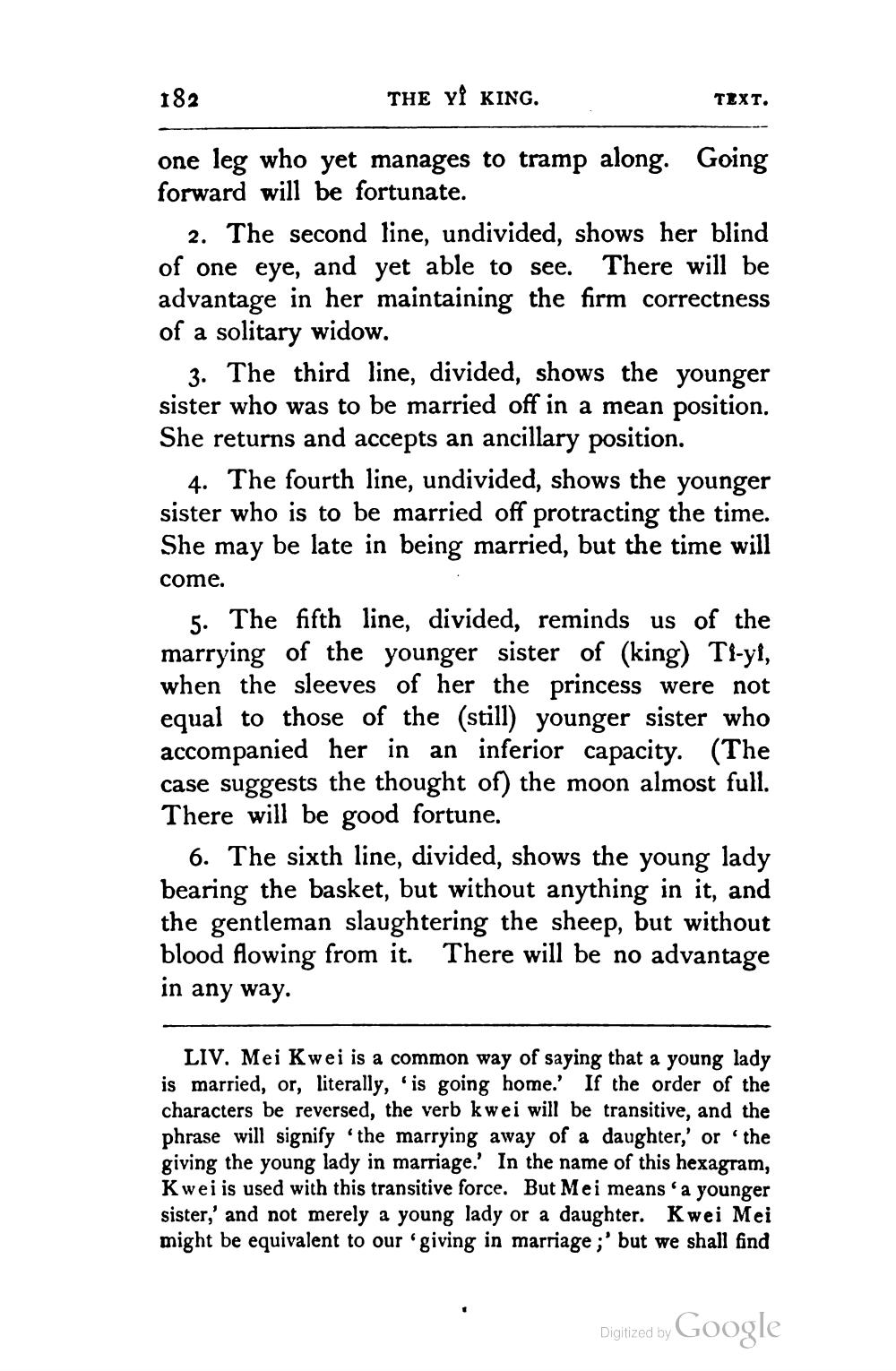________________
182
THE YÎ KING.
TEXT.
one leg who yet manages to tramp along. Going forward will be fortunate.
2. The second line, undivided, shows her blind of one eye, and yet able to see. There will be advantage in her maintaining the firm correctness of a solitary widow.
3. The third line, divided, shows the younger sister who was to be married off in a mean position. She returns and accepts an ancillary position.
4. The fourth line, undivided, shows the younger sister who is to be married off protracting the time. She may be late in being married, but the time will come.
5. The fifth line, divided, reminds us of the marrying of the younger sister of (king) Ti-yi, when the sleeves of her the princess were not equal to those of the (still) younger sister who accompanied her in an inferior capacity. (The case suggests the thought of) the moon almost full. There will be good fortune.
6. The sixth line, divided, shows the young lady bearing the basket, but without anything in it, and the gentleman slaughtering the sheep, but without blood flowing from it. There will be no advantage in any way.
LIV. Mei Kwei is a common way of saying that a young lady is married, or, literally, is going home. If the order of the characters be reversed, the verb kwei will be transitive, and the phrase will signify the marrying away of a daughter,' or 'the giving the young lady in marriage. In the name of this hexagram, Kwei is used with this transitive force. But Mei means a younger sister,' and not merely a young lady or a daughter. Kwei Mei might be equivalent to our 'giving in marriage ;' but we shall find
Digitized by Google




